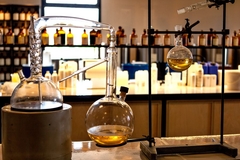Women have lower vitamin D levels in skin, affecting face lift procedure success, research reveals

16 Aug 2023 --- Researchers from the University of Oradea, Romania, have discovered that women face additional challenges in the aging process regarding vitamin D levels and its correlation with collagen formation.
The scientists investigated the relationship between accentuated facial ptosis – drooping upper eyelids – in women and low levels of vitamin D. Rapid onset of facial ptosis can impact a person’s physical appearance and compromise the outcomes of facelift procedures.
Lower levels of vitamin D were found to correlate with collagen production and its deficiency in inflammatory processes that affect the breakdown of hyaluronic acid. Hyaluronic acid is a natural moisturizing substance found in the fluids of the eyes and joints and is added to many skin care products to hydrate the skin.
Based on the research, personal care companies could increase the functionality of their anti-aging products by adding vitamin D into the formulation. Including vitamin D will also help women’s skin respond better to a future facelift, which can be a selling point for brands.
Aging gracefully
Of the 192 patients, 50 were male, and 142 were female, with ages ranging from 35 to 75 years.
The skin changes found in women and not men are due to hormonal shifts after menopause or premenopause, which are associated with osteoporosis and lower vitamin D levels.
 Romanian researchers investigated how sex affects vitamin D levels in the skin.Osteoporosis is a bone disease that develops when bone mineral density and bone mass decrease or when the structure and strength of bone changes, according to the National Institute of Health, US.
Romanian researchers investigated how sex affects vitamin D levels in the skin.Osteoporosis is a bone disease that develops when bone mineral density and bone mass decrease or when the structure and strength of bone changes, according to the National Institute of Health, US.
The study was focused on monitoring the vitamin D levels in women and men with advanced facial ptosis and comparing them with a control group.
A direct association between gender and serum vitamin D levels was observed, indicating less sustainable outcomes in women. This explored preventive measures or strategies to slow down facial ptosis and enhance the longevity of facelift results.
The researchers say there is a correlation between vitamin D and the fortification of skin structure, as vitamin D stimulates collagen secretion. “Vitamin D is considered the new anti-inflammatory agent,” writes the authors.
Sex and vitamin D
Men have higher serum levels of vitamin D compared to women at 9.44%. It takes longer for men to return to the aesthetic surgery office for reapplication after a facelift, filling and touch-ups than for women.
Among the four monitored risk factors, three had a higher occurrence in women. The observed risk factors included hypertension, smoking, alcohol consumption and the presence of type 2 diabetes mellitus.
This higher incidence in women can be attributed to the fact that they undergo lifting interventions more frequently than men, but it may also have other causes.
The scientists concluded there is a strong correlation between vitamin D levels and sex. This might explain why the outcomes of facelift procedures in women are less durable, costlier and result in shorter return times.
The researchers assert that the findings are susceptible to alteration should longer-term studies produce alternative data. However, long-term studies with larger patient groups followed over an extended period might verify the hypothesis.
By Sabine Waldeck













